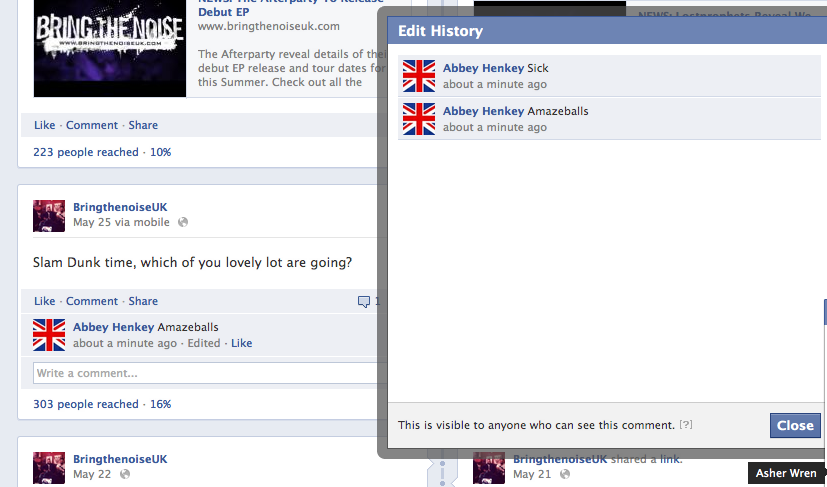Much has been written about Facebook comment editing functionality since it was implemented across some (lucky) individuals’ accounts a week ago. General consensus is that this new feature is of benefit and indeed long overdue, though the focus for these observations tends to be the impact on the individual doing the posting, and little has been said on the implication on the brands who own Facebook pages – and in turn the moderators who manage them.
While the benefits of the new functionality are obvious (and already much documented): you can now edit silly typos from your comments without disrupting the flow of conversation, and without the pain of the ‘copy / delete / paste / amend / post’ process, it is the potential pitfalls for moderation, brand reputation and community protection that I’d like to focus on.
From the point of view of the community manager of a brand page, my first concern would be that a commenter might post an innocent comment on my status update, only to subsequently edit this to something offensive. Having spoken with a number of 3rd party moderation tools (who were not made aware of the new functionality ahead of implementation) it seems that only an original comment, and not an edited version, will appear in any 3rd party application for moderation. Furthermore, even moderators working solely on Facebook’s front end will struggle to spot edited comments, particularly if the edit is made to a now dated comment. If this gap in moderation capability is spotted by trolls, cyberbullies and the like this new functionality may be abused, leaving brands’ reputations and communities vulnerable.
A second concern arises from Facebook’s decision to make a comment’s ‘edit history’ visible to the public. Even after a comment has been amended, any previous iterations of the comment can be viewed publicly at the click of a button. What’s more, it’s impossible to remove a previous iteration of a comment separately from the amended post: in order to remove something within the ‘edit history’ from your page you would have to also remove the amended post. This means that, if in a heated moment, a commenter was to post something offensive which they then regret and edit out: a moderator may be forced to remove the edited post in order to remove the original offensive comment from the page. The potential for backlash from community members who have had their content removed is therefore of increasing concern with the new Facebook comment editing functionality.
The option to edit your own content is clearly practical and useful, and brings Facebook in line with its competitors, but unless Facebook works alongside 3rd party moderation tools and builds in the option to delete individual entries within the ‘edit history’: this functionality poses a serious risk to the user experience of communities built around brand pages and brand reputations.




